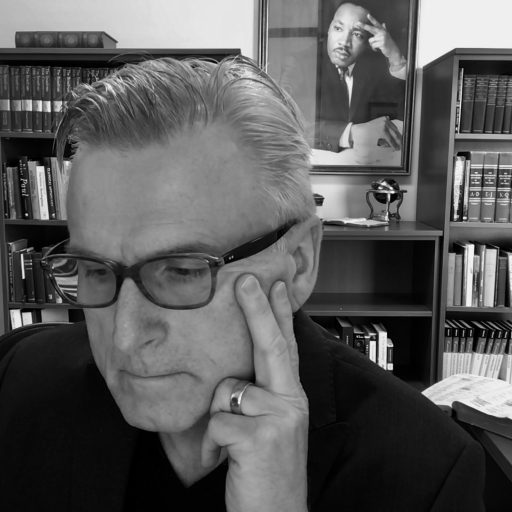If you’re not into metaphors, nothing to see here. If you love it like I do, come along!
In the arid Judean wilderness, perched on the edge of the Dead Sea, lies Qumran, a site steeped in history and mystery. It’s here that the Dead Sea Scrolls were discovered, unlocking ancient truths and revealing a hidden treasure trove of Scripture. For me, Qumran serves as a metaphor of the spiritual pilgrimage. Like the shepherd boy, I’m throwing rocks into the dark caves of my own story and questions.
If you want to find God, you must go into the wilderness.

Like the hidden scrolls, God’s truth often lies buried deep within us, waiting to be uncovered. This discovery requires intentionality, humility, and a willingness to venture into the wilderness of self-examination.
When we surrender to Christ, He becomes our guide through the wilderness, teaching us to confront the brokenness of our old lives and to search the Scriptures for eternal truth. As the psalmist writes, “Search me, O God, and know my heart; test me and know my anxious thoughts” (Psalm 139:23). This act of surrender and self-examination mirrors the process of uncovering the scrolls—peeling back layers to reveal the treasures God has hidden within us.
The Dead Sea of Our Old Lives
The Dead Sea, the lowest point on earth, is a stark image of desolation. Its waters are lifeless, incapable of sustaining fish or plants. Yet, in its depths lies a story of transformation. Just as the Dead Sea encircles Qumran, our old lives often feel like lifeless wastelands—marked by sin, emptiness, and self-reliance. But in Christ, the desolation of our past becomes the fertile ground where God’s truth is revealed.
Vera Nezarian, a Russian writer shares an observation that resonates with me: “The desert and the ocean are realms of desolation on the surface. Both, seething with hidden life.The only veil that stands between perception of what is underneath the desolate surface is your courage.”
If we sit in the space of desolation long enough, we can observe that there’s something more going on there.
Christ as the Living Word
The Qumran scrolls remind us of the enduring power of God’s Word. Just as those ancient texts were preserved against all odds, so the Word of God speaks into the brokenness of our lives with timeless relevance. Jesus, the Living Word, illuminates the Scriptures, helping us grow in the knowledge of God and in our surrender to Him.
As we draw closer to Christ, we learn that truth is not a distant or abstract concept but a person. Jesus declared, “I am the way and the truth and the life” (John 14:6). Jesus beckons us to come into the hard places to find the answers to the Mystery.
A Call to Unearth the Scrolls Within

God calls you into desolations and dark nights, a land like Qumran, because it’s there when you might stumble into the greatest discovery of your life. While your desolation might look like barren wildernesses, he might, just might, be leading you into a sacred space where you can experience God more fully.
Frequent Caves of the Qumran soul:
Depression
Job loss
Disaster
Betrayal
Prodigals
Chronic Illnesses
Loss
Disapproval
Rejection
Aging
Cancer
It is in this wilderness, through the guidance of the Holy Spirit, that we confront the Dead Sea of our old lives and embrace the living waters of Christ. But we will never make sense of the wilderness, if we aren’t searching. I found the truth of Christ, but my search continues for the fragments I’ve yet to discover in Him. I don’t have all the answers. Neither do you. We’re all still looking and revelation is in real time.
As believers, we are called to unearth the “scrolls” of God’s truth in our lives. These scrolls are not hidden in distant caves but within our own hearts, waiting for us to dive into the Word of God, to pray, to listen, and to surrender. In doing so, we allow Christ to rewrite the story of our lives, transforming our desolation into abundance and our wilderness into a garden.
As I’ve pondered this metaphor, I’m reminded of Paul’s words: “But we have this treasure in jars of clay to show that this all-surpassing power is from God and not from us” (2 Corinthians 4:7). This verse beautifully took me back to Qumran, emphasizing the fragility of my humanity and the divine treasure within us.

Like the ancient scrolls preserved in simple clay jars, God’s truth resides in the humble vessels of our lives. The jars of clay, fragile and unremarkable, symbolize our weakness and dependence on God. Yet, it is through these fragile vessels that His power is displayed. In the context of Qumran, the clay jars that protected the scrolls echo the transformative work of Christ in us—His truth and glory shine through our imperfections, revealing that the source of life and redemption is not in us but in Him. As we surrender to Christ, our brokenness becomes the means through which His light and truth are made known to the world.
Robert Frost’s poem “A Servant to Servants,” he reflects on the inner turmoil and the weight of circumstances, yet also hints at a search for deeper understanding and purpose. He concludes: “The best way out is always through.” This line captures the essence of spiritual surrender and transformation—moving through the wilderness of our struggles to discover the treasure of God’s truth. It aligns with the idea that Christ meets us in our brokenness (our “jars of clay”) and leads us through it, revealing His glory in the process.
Qumran stands as a powerful reminder of God’s faithfulness to preserve His truth and reveal it to those who seek Him. It is a metaphor for the transformative journey every believer takes—a journey that leads us from the desolation of our old lives to the life-giving truth found in Christ.
A Blessing
So may you be inspired, my brothers and sisters, continue to search deeply within yourself, trusting Christ to guide you. In the quiet wilderness of your heart, may you find not only ancient truth but also the living presence of the Savior, who invites you to grow in the knowledge of God and experience the fullness of His grace.


